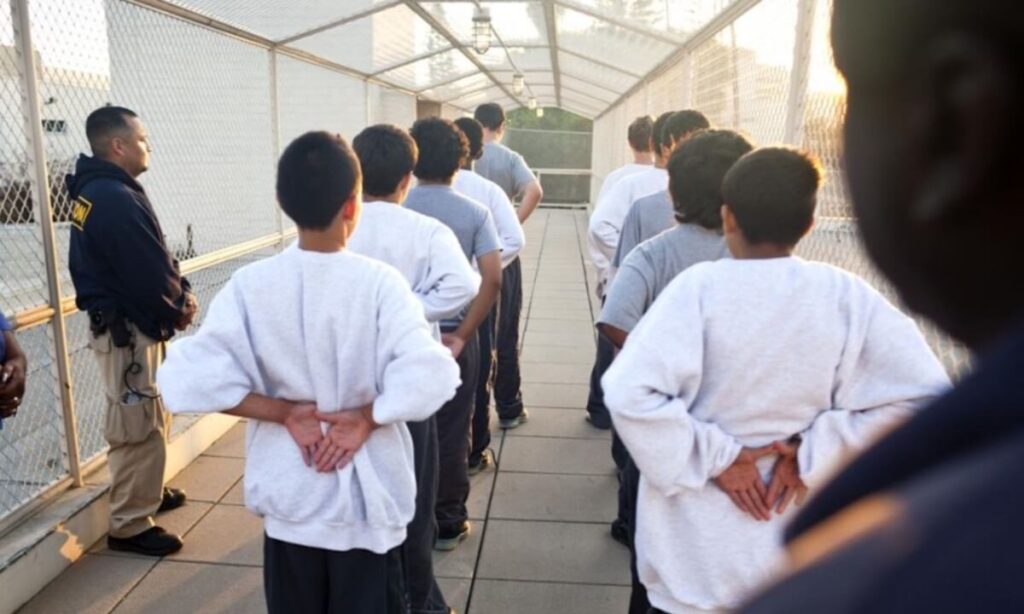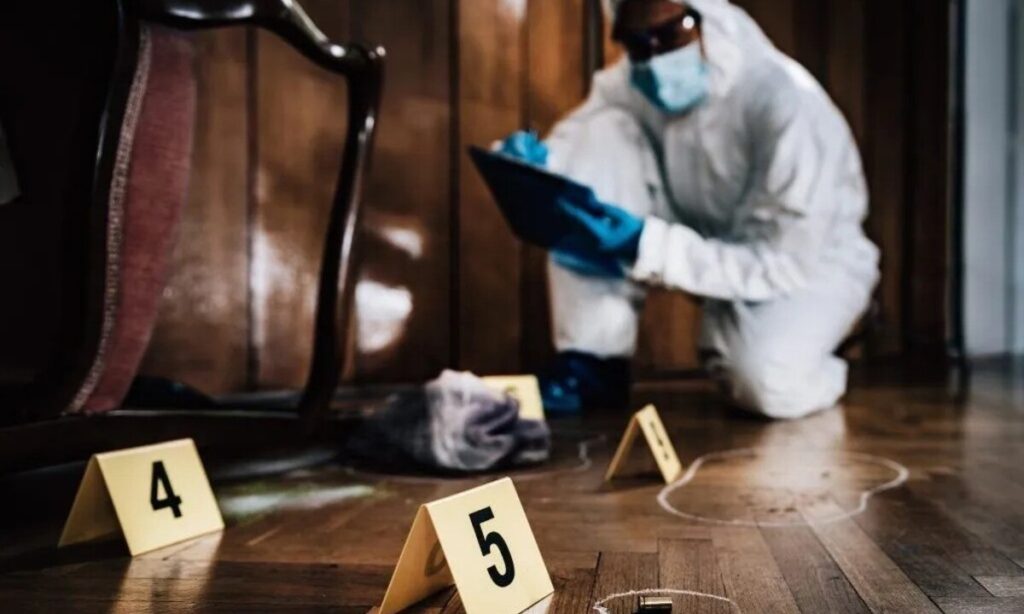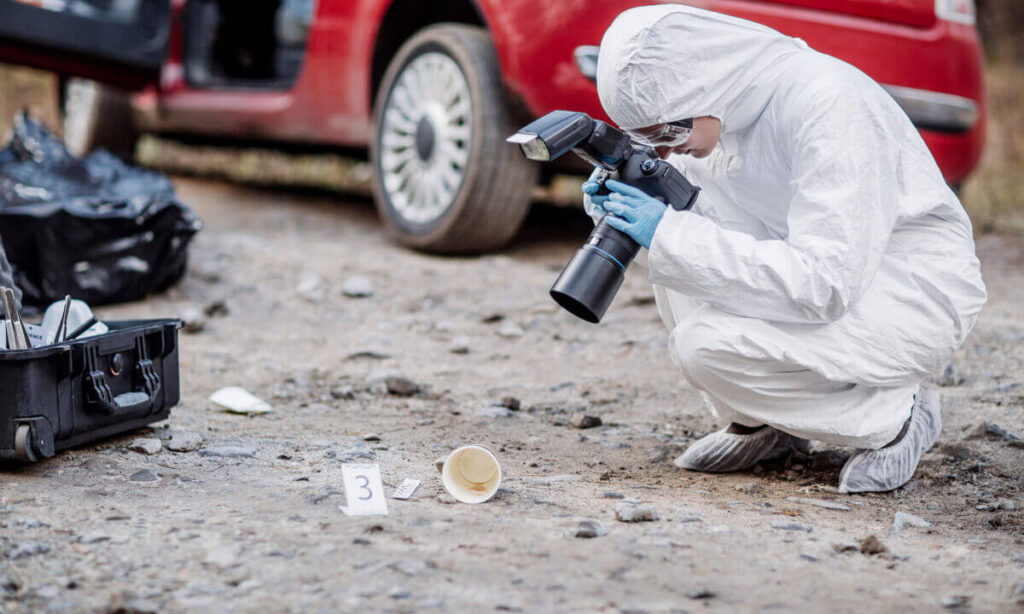For individuals passionate about assisting troubled youth and supporting their successful reintegration into society, a role as a juvenile probation officer could be an ideal career choice. In the criminal justice system, juvenile probation officers have a vital role in assisting young individuals who have faced legal problems or been convicted of crimes. Exploring the path to becoming a juvenile probation officer involves understanding the necessary qualifications, skills, job demands, and potential career growth. Upon completing this guide, you will have a comprehensive grasp on how to become a juvenile probation officer.
What Do Juvenile Probation Officers Do Differently?
Juvenile probation officers play a distinct role in the criminal justice system, with a focus on young offenders aged 12 to 18. Juvenile probation officers focus on rehabilitating and mentoring young individuals to encourage responsible and law-abiding behavior, unlike probation officers who work with adult offenders. Their main objective is to offer assistance, guidance, and resources to aid young individuals in overcoming obstacles and avoiding future offenses.
Working in collaboration with the court system, social services agencies, and community programs, juvenile probation officers create personalized case plans for each young offender. These case plans often consist of counseling, educational resources, vocational training, and community service. Juvenile probation officers go beyond supervision, serving as mentors and advocates to assist juveniles in addressing the underlying causes of their behavior and steering them toward positive life decisions.
How to become a Juvenile Probation Officer (Step-By-Step Guide)
Here are the detailed steps on how to become a probation officer for juveniles:
1. General requirements
Meeting specific requirements is essential to become a juvenile probation officer. It is essential to be at least 21 years old. Meeting the age requirement ensures that you possess the maturity and life experience needed to manage the responsibilities of the job. It is a requirement to be a citizen or legal resident of the country where you want to work as a probation officer. Having this requirement in place ensures that individuals are invested in the community and its welfare.
Aside from meeting the age and citizenship criteria, a valid driver’s license is also necessary. When working as a juvenile probation officer, you will need to visit different locations, such as the residences of the young offenders you oversee. Having a driver’s license is crucial for fulfilling these responsibilities efficiently. Finally, a clean criminal record is required. Ensuring a candidate’s trustworthiness and suitability for the role of a probation officer involves conducting background checks.
2. Education and qualifications
Typically, a bachelor’s degree in a relevant field is required to pursue a career as a juvenile probation officer, although the specific educational requirements may differ depending on the jurisdiction. Several popular fields of study are criminal justice, psychology, social work, and sociology. These degree programs offer a comprehensive understanding of the criminal justice system, human behavior, and rehabilitation methods.
Having a bachelor’s degree is important, but gaining practical experience through internships or volunteer work in juvenile justice can be very beneficial. Engaging in this practical experience provides insight into the difficulties and benefits of working with juvenile delinquents. This resource offers a deep dive into the probation system, equipping you with the essential tools to effectively support and mentor at-risk youth.
In addition, numerous jurisdictions mandate that aspiring probation officers must successfully complete a written test. Individuals taking this examination will be assessed on their understanding of criminal justice principles, the legal system, and their capacity to manage different scenarios encountered in the field. Preparation is crucial, therefore, it is advisable to enroll in preparatory courses or make use of study guides to enhance your likelihood of success.
3. Certification
After meeting the education and qualification requirements, the next step involves obtaining certification as a juvenile probation officer. Training programs for juvenile probation typically vary depending on the jurisdiction’s certification requirements. The training program includes a range of subjects, including case management, counseling techniques, risk assessment, and the legal and ethical duties of a probation officer.
After finishing the training program, passing a certification exam may be necessary to showcase your comprehension of the material. This examination evaluates your understanding of the juvenile justice system and your capacity to implement the principles acquired in the training program. Obtaining certification is a vital milestone on the path to becoming a skilled and capable juvenile probation officer.
4. Training
Even with certification, the learning journey continues. As a juvenile probation officer, continuous training is essential to remain informed about the most recent research, techniques, and best practices in the field. This training ensures that individuals are well-prepared to effectively handle the diverse needs and challenges of the young people under their supervision.
Training options encompass workshops, conferences, seminars, and online courses. These resources offer valuable insights on mental health, substance abuse, gang prevention, and restorative justice. Staying informed and continuously enhancing your skills will enable you to offer optimal support and guidance to the young offenders under your supervision.
Skills and Qualities Required for Success in This Career
To excel as a juvenile probation officer, one must possess a distinct combination of skills and qualities. Below are key attributes that can enhance your performance in this position:
- Empathy and Compassion: Having empathy and compassion is crucial when working with troubled youth due to the emotional challenges involved. Understanding the challenges individuals face and establishing a meaningful connection with them can build trust and inspire progress.
- Strong Communication Skills: Effective communication is crucial for juvenile probation officers. They need to convey information, listen actively, and build rapport with young offenders. It is crucial to communicate clearly and concisely when interacting with individuals who might struggle to articulate themselves or grasp intricate ideas.
- Problem-Solving Abilities: Dealing with distinct challenges is a common occurrence for juvenile probation officers. Success in this profession hinges on the ability to think critically, pinpoint possible solutions, and execute strategies that tackle the root causes.
- Flexibility and Adaptability: Navigating the world of juveniles requires handling unforeseeable scenarios and evolving conditions. Probation officers have the ability to tailor their approach, interventions, and case plans to meet the unique needs of each young offender by being flexible and adaptable.
- Ethical Decision-Making: When making decisions that affect young individuals, juvenile probation officers are required to follow strict ethical standards. It is crucial to possess a strong moral compass and the capability to make sound judgments in difficult circumstances.
Challenges and Rewards of Working as a Juvenile Probation Officer
Being a juvenile probation officer presents a mix of challenges and rewards. One must be dedicated, resilient, and have a sincere desire to create a positive impact on the lives of troubled youth. Outlined below are several significant challenges and benefits linked to this profession:
Challenges
- Emotional Toll: Probation officers often face emotional challenges when working with troubled youth and witnessing their struggles. Practicing self-care and seeking support are crucial in preventing burnout.
- Risk of Violence: Young offenders might display aggressive or violent conduct, creating potential dangers for probation officers. Ensuring personal safety is a top priority in this profession.
- Limited Resources: When working with young offenders, juvenile probation officers frequently encounter obstacles in obtaining the essential programs, services, and funding needed to effectively aid in their rehabilitation due to limited resources.
Rewards
- Making a Difference: Having the chance to make a positive impact on the lives of troubled youth and help them towards a better future is truly fulfilling. Observing the evolution and development of young individuals can bring great fulfillment.
- Building Relationships: Juvenile probation officers act as mentors and advocates, building strong relationships with their clients. Establishing these connections can be deeply rewarding and play a crucial role in the effectiveness of the rehabilitation journey.
- Professional Growth: Opportunities for professional growth and development are abundant for those working as a juvenile probation officer. Engaging in ongoing education, receiving specific instruction, and having a positive impact on the youth can result in a rewarding and enduring profession.
Juvenile Probation Officer Career Outlook and Salary Expectations
The career prospects for juvenile probation officers can differ based on their location and the demand for their services. There is a variation in demand for juvenile probation officers across different areas, with some regions offering more job opportunities than others. Researching the job market in your area involves considering factors like population demographics, funding for social services, and the prevalence of youth crime.
When it comes to salary expectations for juvenile probation officers, wages may differ depending on educational background, work experience, and where they are located. In May 2022, the median annual wage for probation officers and correctional treatment specialists was $59,860, as reported by the U.S. Bureau of Labor Statistics. It is important to note that salaries can differ significantly between jurisdictions and may be influenced by budgetary constraints.
The Daily Life of a Juvenile Probation Officer
Being a juvenile probation officer involves a dynamic and varied daily routine. This role includes a mix of office tasks, field trips, court hearings, and communication with clients and their families. Provided is an overview of the usual tasks and duties of a juvenile probation officer:
- Case Management: Managing a caseload of young offenders falls under the responsibilities of juvenile probation officers. Tasks involve conducting assessments, creating case plans, tracking progress, and organizing essential services and interventions.
- Supervision and Monitoring: Probation officers frequently meet with their clients to verify adherence to court-ordered conditions, including attending counseling sessions, finishing community service, and following curfews. As part of their supervisory responsibilities, they might also perform home visits and drug testing.
- Collaboration and Referrals: Juvenile probation officers collaborate with a range of stakeholders such as social workers, therapists, educators, and community organizations to offer holistic support to their clients. Referrals may be made to specific programs or services that cater to individuals’ unique needs.
- Report Writing and Documentation: Accurate and detailed documentation plays a crucial role in the responsibilities of a juvenile probation officer. It is essential to keep detailed records of client interactions, progress reports, and adherence to court-ordered conditions.
- Court Appearances: Probation officers often attend court hearings to give updates on their clients’ progress, suggest changes to case plans, or provide testimony. They serve as strong supporters for their clients and offer crucial details to help the court make well-informed judgments.
FAQs on How to Become a Juvenile Probation Officer
What communication skills are important for someone working as a juvenile probation officer?
Strong communication abilities are crucial for a juvenile probation officer. Collaboration with juvenile offenders, their families, and other stakeholders in the criminal justice system will be a key aspect of your role. It is essential to communicate effectively with people from various backgrounds and build connections. Key skills for a juvenile probation officer include active listening, empathy, and clear communication.
How long does it take to become a probation officer?
The length of time needed to become a probation officer can differ based on the person’s educational history and the particular criteria set by the state or agency. It typically requires two to four years to finish the required education and training to pursue a career as a juvenile probation officer. Researching the requirements of your state and planning accordingly is crucial for achieving your career goals.
Conclusion
Embarking on a career as a juvenile probation officer can be a fulfilling and influential choice for individuals dedicated to supporting at-risk youth. By adhering to the steps detailed in this guide, obtaining the required education and training, and developing the necessary skills and qualities, you can start a rewarding path towards becoming a juvenile probation officer. Navigating the path ahead may come with obstacles, yet the chance to make a difference in the lives of youth and help them reintegrate into society is invaluable. If you are dedicated to making a positive impact and helping at-risk youth build a better tomorrow, a profession as a juvenile probation officer may be the right fit for you.
Did you find this article helpful? Check out this article on the 12 Most Popular Careers in Crime Scene Investigation (CSI). For more articles, check out our website. Thank you for reading!






